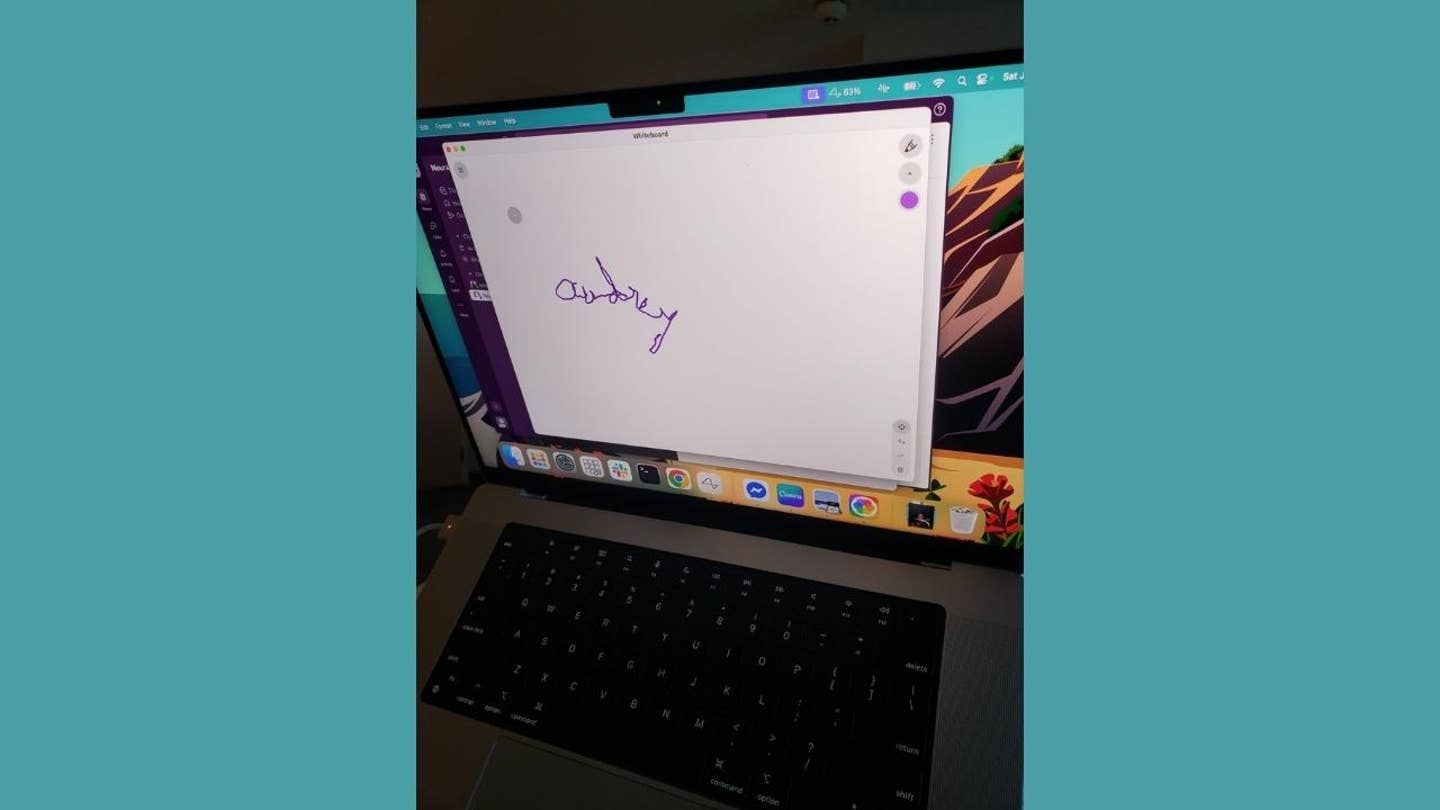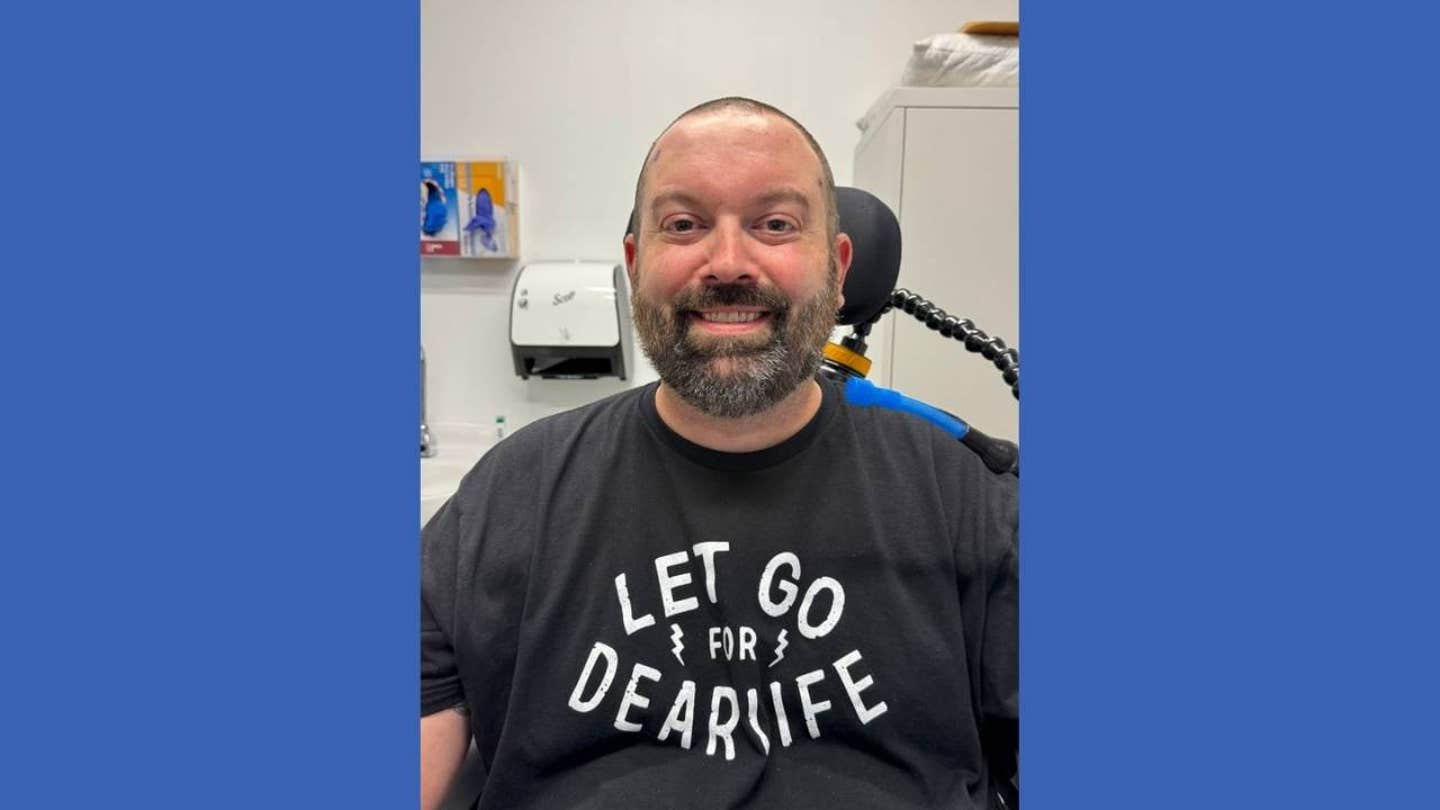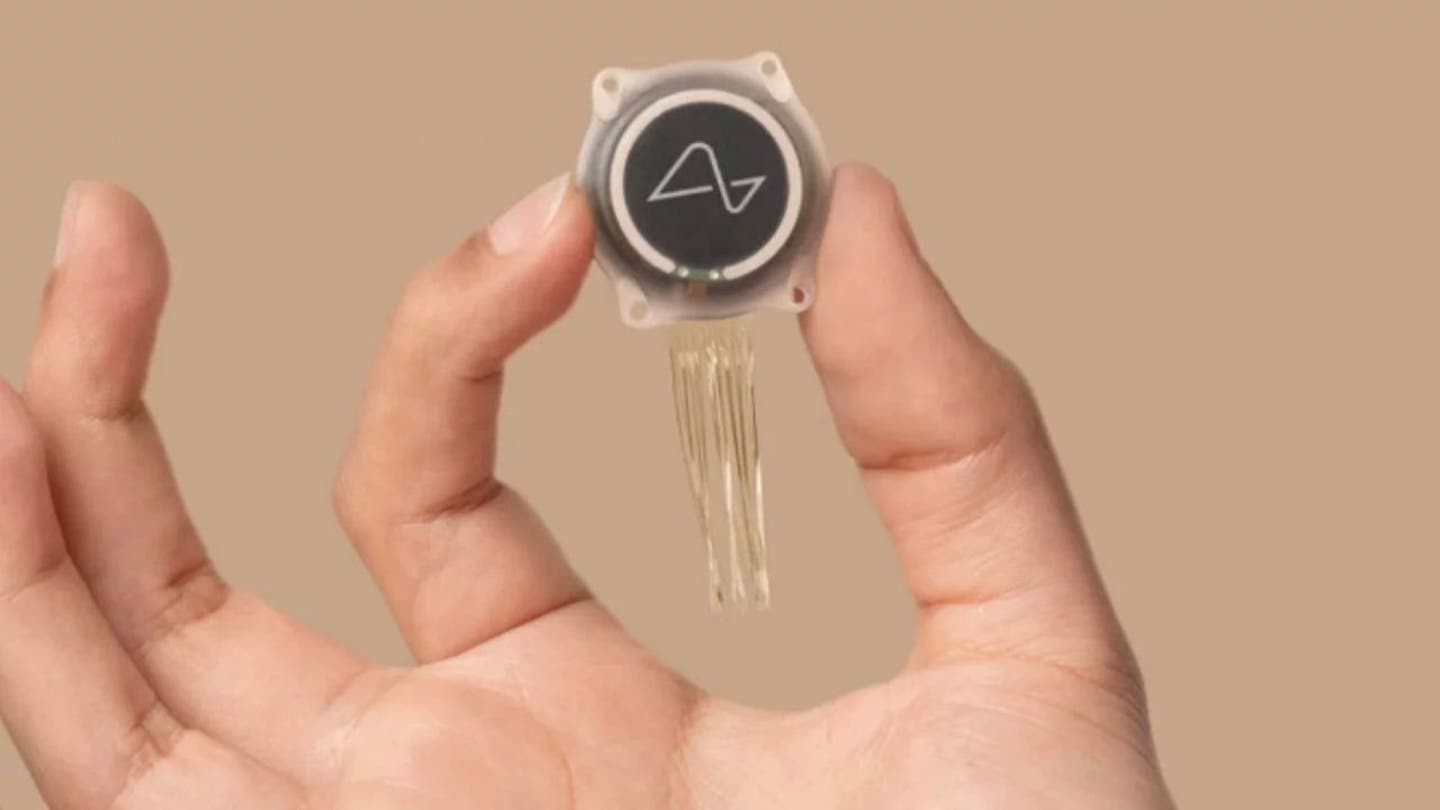NEWYou can now listen to articles!
For more than two decades, Audrey Crews refrained from writing her own name. However, a breakthrough occurred when she utilized a brain chip from Elon Musk’s Neuralink to inscribe “Audrey” on a laptop screen using only her thoughts. This extraordinary feat captivated millions online and even garnered recognition from Musk himself.
Brain-computer interface. (Neuralink)
Audrey Crews Makes History with Neuralink Implant
Having lost all motor function at the age of 16, Crews, now 39, participated in Neuralink’s PRIME Study to evaluate brain-computer interface (BCI) technology in humans. Her chip, embedded in her motor cortex, interprets brain signals and transmits them to a computer, enabling her to manipulate a cursor and type using only her thoughts.
Describing the procedure, Crews stated, “They drilled a hole in my skull and placed 128 threads into my motor cortex. The chip is about the size of a quarter.”
While the chip does not restore movement, it grants her a significant level of digital independence. Sharing a snapshot of her signature online, she humorously added, “I tried writing my name for the first time in 20 years. I’m working on it. Lol #Neuralink.”
She expressed her appreciation for the medical team at the University of Miami Health Center, stating, “They treated me like a VIP and are some of the sweetest people I’ve ever met.”

Audrey Crews shared a picture of her signature. (@NeuraNova9/X))
Controlling Computers with the Mind through Brain Chip
Musk acknowledged Crews’ accomplishment online, remarking, “Most people don’t realize this is possible.”
This statement reverberated across the internet, with her signature post quickly going viral and amassing over 2 million views. Crews clarified that the chip enables “telepathy only,” not physical mobility. Nevertheless, even this level of control holds transformative potential for individuals with paralysis.
Neuralink, established by Musk in 2016, aims to empower people with neurological conditions to connect with the digital realm in innovative ways. The company is developing BCIs that allow users to operate devices using their thoughts exclusively.
Despite being in the nascent stages, this technology is already demonstrating life-altering capabilities. Looking ahead, Neuralink envisions a future where thought-controlled computing becomes a commonplace aspect of human existence.
Expanding Neuralink Trial: Participant Nick Wray Shares Experience
Crews is not alone in her journey. Another participant, Nick Wray (P8), shared his progress shortly after the activation of his own implant.
Diagnosed with ALS, Wray hailed the implant as a transformative opportunity. He regarded this moment as both personal and historic, expressing, “It’s not lost on me that without ALS, I would never have been a candidate for this study. I sincerely believe that if ALS is the price of admission to an opportunity of this magnitude, you pay it; gladly, willingly, and without hesitation.”

BCI Neuralink participant Nick Wray. (@Telepath_8/X)
Implications for the Future
The significance goes beyond merely writing a name; it foreshadows what lies ahead. Neuralink’s brain chip is already yielding results in real individuals. If you’ve ever pondered the possibility of controlling your phone, composing an email, or playing a game without physical contact with a screen through brain-computer interfaces, that future is drawing nearer.
While still experimental, these breakthroughs offer a glimpse into a novel form of human-machine interaction.
Neuralink is currently seeking participants globally. If you’re intrigued by brain-computer interfaces, this could be an opportunity to contribute to shaping the future. Explore further at https://neuralink.com/trials

Brain-computer interface. (Neuralink)
Key Insights from Kurt
Audrey Crews didn’t just rewrite her name; she redefined the boundaries of possibility. With a chip the size of a quarter, she became the first woman to manipulate a computer solely through thought. Her story is not only inspirational but also serves as a cautionary tale to the tech industry: the era of mind-controlled machines is fast approaching.
Would you be willing to participate in a brain-computer trial like Audrey and Nick? Or do you believe it’s premature to trust this technology? Share your thoughts with us at Cyberguy.com/Contact.
Sign up for the FREE CyberGuy Report
Receive top tech tips, urgent security alerts, and exclusive deals directly to your inbox. Plus, gain instant access to the Ultimate Scam Survival Guide when you join CYBERGUY.COM/NEWSLETTER.
Copyright 2025 CyberGuy.com. All rights reserved.
Kurt “CyberGuy” Knutsson is an esteemed tech journalist with a passion for technology, gadgets, and gear that enhance life. He contributes to Fox News & FOX Business, appearing on “FOX & Friends” in the mornings. Do you have a tech query? Receive Kurt’s CyberGuy Newsletter for free, share your voice, suggest a story, or comment at CyberGuy.com.





